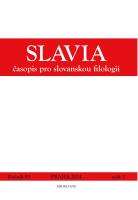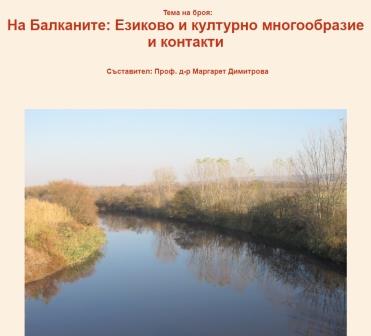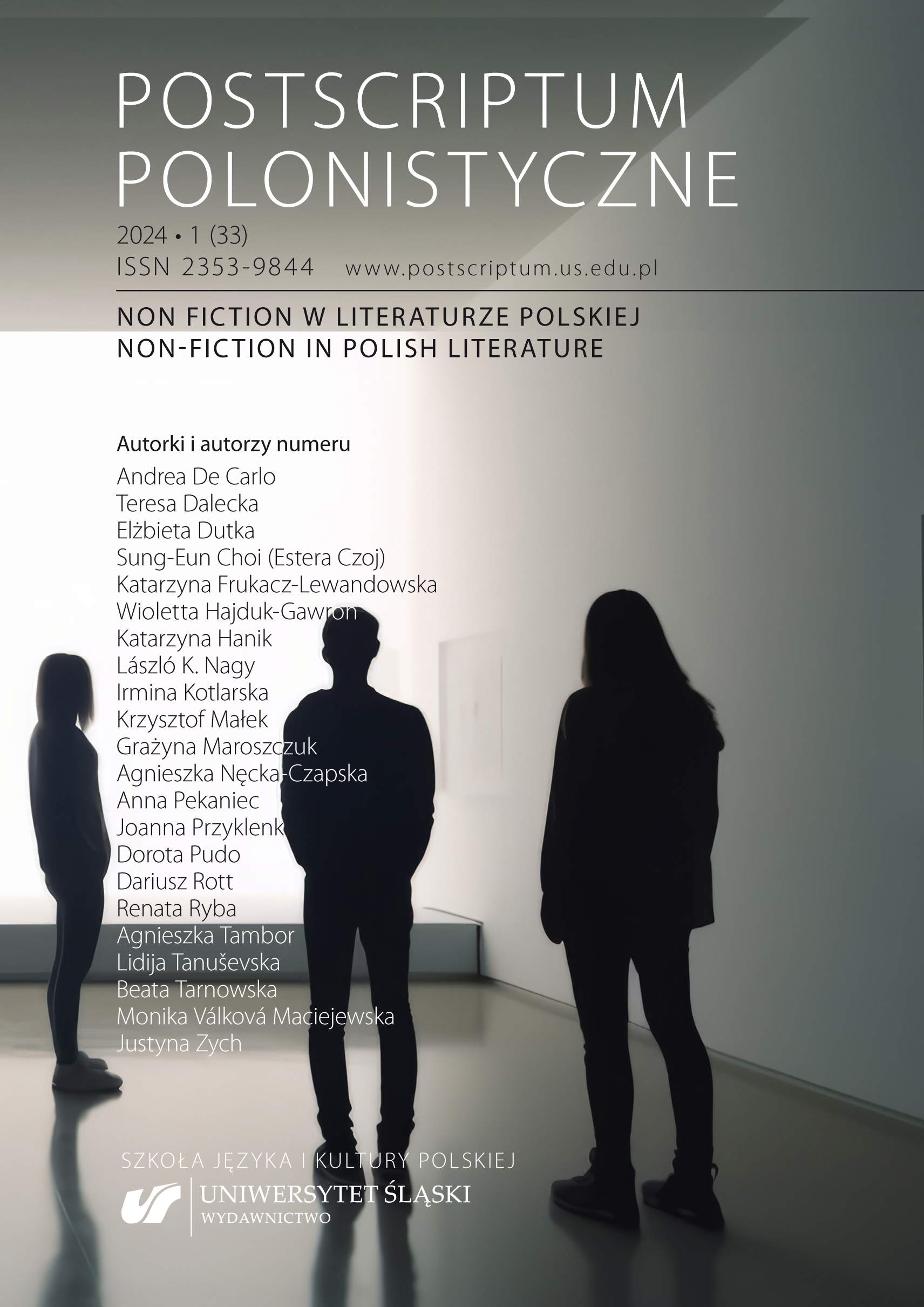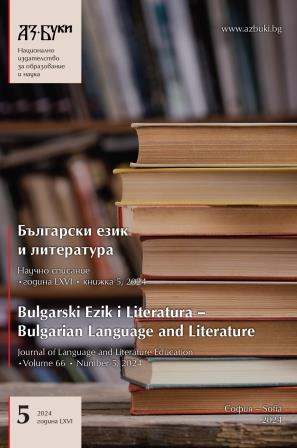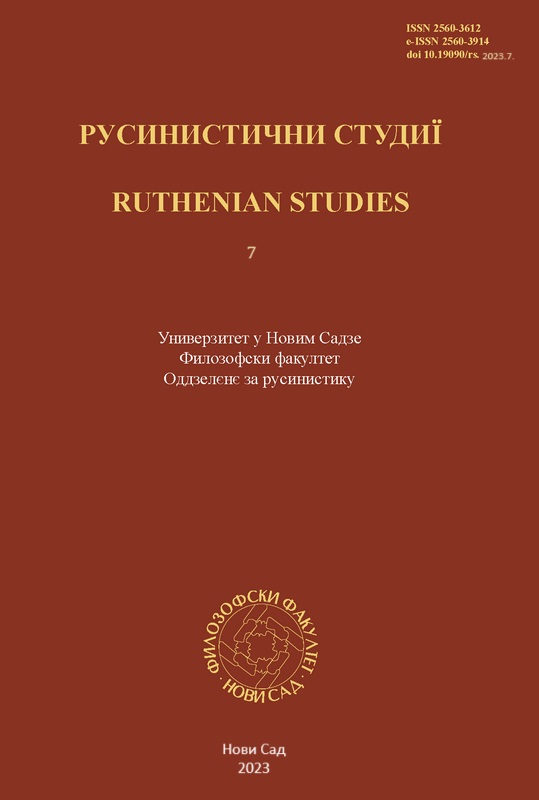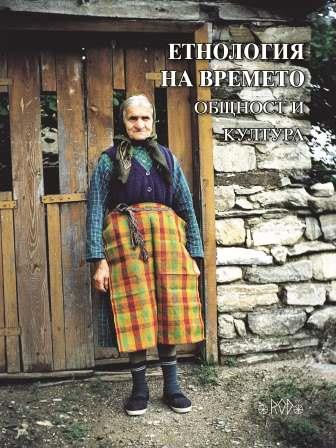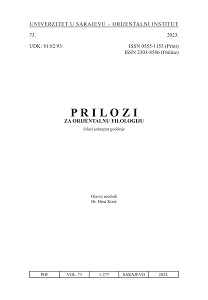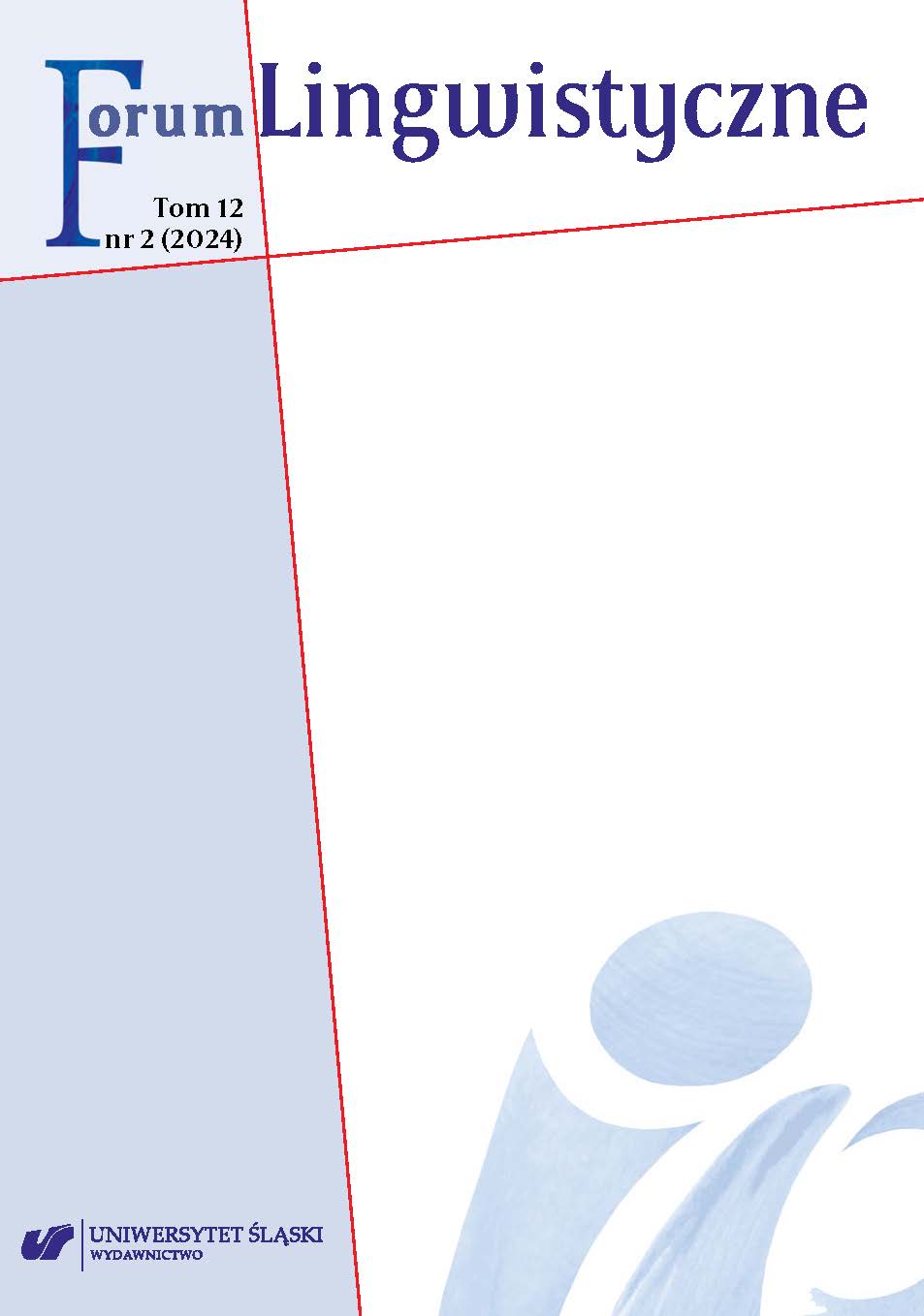Author(s): Dželila Babović,Vedad Hurić,Hamza Kurtanović,Berin Bajrić,Đenita Haverić,Madžida Mašić,Amir Džinić,Emina Mostić,Elma Dervišbegović / Language(s): Bosnian
Issue: 73/2023
Reviews of:
1. Mehmed Kico i Amrudin Hajrić, UVOD U ORIJENTALNU FILOLOGIJU, Fakultet islamskih nauka i ElKalem, Sarajevo, 2021, 184 str.
2. Dragana M. Đorđević, UVOD U KLASIČNU ARAPSKU LEKSIKOGRAFIJU (VIII – XVIII VEK), Univerzitet u Beogradu – Filološki fakultet, Beograd, 2024, 122 str.
3. Berin Bajrić, ORIJENTALNO-ISLAMSKO NASLIJEĐE U DJELU MUḤĀḌARA AL-ʼAWĀʼIL WA MUSĀMARA AL-ʼAWĀḪIR ALI-DEDE BOŠNJAKA, Univerzitet u Sarajevu – Orijentalni institut i Centar za napredne studije, Posebna izdanja LXX, Sarajevo, 2023, 153 str.
4. ANTOLOGIJA POEZIJE ARAPSKOG ISTOKA XX VIJEKA, Izbor: Esad Duraković i Muhammed Mufaku, IC štamparija Mostar, Mostar, 2024, 306 str.
5. DÜNYA’DA TURKOLOJİ, sv. I-III, Priredili: Prof. dr. Öztürk Emiroğlu, dr. Bagdagul Mussa, Türkoloji Akademisi & Intercontinental, Ankara, 2024, 2071 str.
6. Mustafa İsen, Tuba Durmuş, BALKANLARDA TÜRK EDEBIYATI TARIHI: BAŞLANGICINDAN GÜNÜMÜZE KADAR, UNYT Press, İstanbul, 2023, 639 S.
7. Munir Drkić i Ahmed Zildžić, CARSTVO TEKSTA: TUḤFE-I ŠĀHIDĪ I NJEGOVA UPOTREBA U OSMANSKOJ BOSNI, Gazi Husrev-begova biblioteka u Sarajevu, Sarajevo, 2023, 230 str.
8. Adnan Kadrić, Alma Omanović-Veladžić, BUŽIM U OSMANSKIM DOKUMENTIMA I POPIS STANOVNIŠTVA 1851. GODINE, BZK „Preporod“ Bužim, Bužim, 2024, 513 str.
9. Aida Mujezin-Čolo, ČAJNIČE I OKOLINA, 15. I 16. STOLJEĆE, ElKalem, Sarajevo, 2023, 253 str.
10. Adis Zilić, Faruk Taslidža, Sedad Bešlija, Haris Dervišević, Ahmet Kurt, SINAN-PAŠA BOROVINIĆ: DRUŠTVENI STATUS, PORIJEKLO, POLITIČKI USPON, POČETAK URBANIZACIJE MOSTARA, Univerzitet Džemal Bijedić u Mostaru, Medžlis Islamske zajednice Mostar, Mostar, 2023, 198 str.
11. KATALOG ARAPSKIH, TURSKIH, PERZIJSKIH I BOSANSKIH RUKOPISA, Svezak IV, Obradio Ahmed Zildžić. Historijski arhiv Sarajevo, Sarajevo, 2023, 296 str.
12. MEDICINA BEZ GRANICA: ZDRAVLJE I LIJEČENJE U OSMANSKOJ BOSNI, Zbornik radova, Bošnjački institut – Fondacija Adila Zulfikarpašića, Sarajevo, 2023, 163 str.
More...
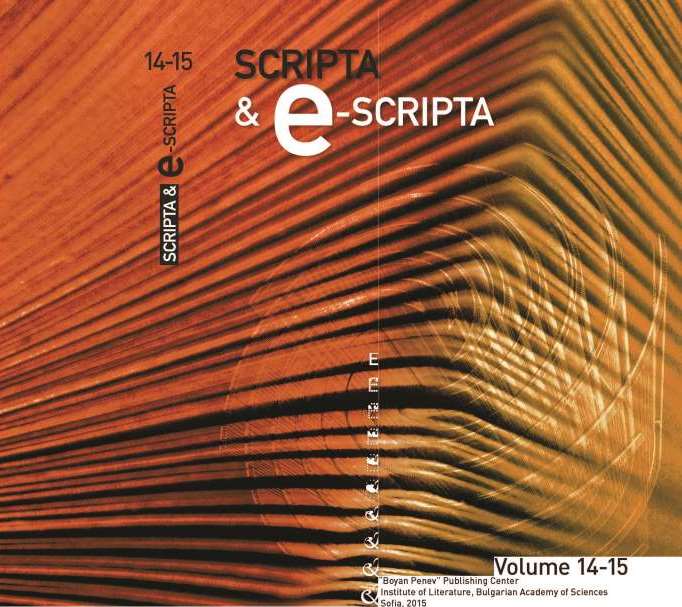

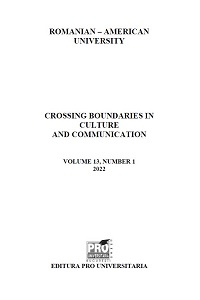
![Review of the linguistic materials contained in volume 2, section 2, of the two-volume Makedoniya. Istoriya i kultura ot drevnostta do dnes [Macedonia. History and Culture from Ancient Times to the Present] (2023); Ezikoznanie [Linguistics], ed. Geor](/api/image/getissuecoverimage?id=picture_2024_82588.jpg)
